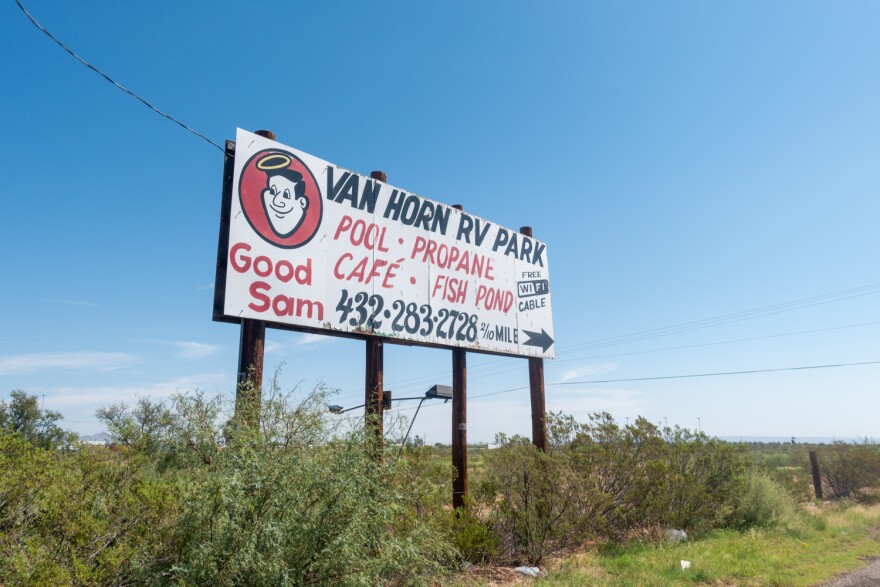In Far West Texas, hours away from the state’s major cities, there’s a fight brewing over plans for a major natural gas pipeline.
The oil-and-gas-rich state already has hundreds of thousands of miles of pipelines, but the industry’s expansion into new rural regions has prompted some pushback.
This all comes at a time when pipeline opponents across the country are shifting their tactics and finding some success at actually blocking projects.
Earlier this summer, a few dozen West Texans gathered in the tiny town of Van Horn to hear about a proposed pipeline called the Saguaro Connector. Some locals, like Eva Franco Lozano, said this was the first they had heard about it. She lives just south of town.
“And that’s where most of the pipeline’s going through,” she said. “But we’re not happy about it because they didn’t even advise us or nothing.”

Oklahoma-based Oneok wants to build the 48-inch-diameter natural gas line through this dusty, isolated corner of the state. The proposal is still tentative, and the company said it hasn’t made a “final investment decision.” But state records show it’s being planned to run about a mile from Lozano’s home. She’s worried “about everything — health issues, property destruction, everything,” she said.
Nearby RV park owner Penny Self also opposes the project. “I want to get the community involved is what I want to do,” she said.
Self said she mostly takes issue with the pipeline’s location. This is the only town for miles and miles, and it’s surrounded by vast, open ranch land.
“They could use that land,” she said. “You know, there’s leaks, there’s explosions. Go further out.”
Self found out about the pipeline through Property Rights and Pipeline Center, a national group that opposes projects being built through private land without a landowner’s consent.
In Texas, oil and gas companies have broad leeway to do that, thanks to the power of eminent domain. This happens in other states too, but in Texas, companies can get that power simply by telling state regulators they qualify for it.

“Why is it OK that this trillion-dollar industry can take your land against your will?” asked Rebekah Sale, founder of the anti-pipeline group.
Oneok didn’t respond to an interview request.
In a statement, the Texas Pipeline Association said eminent domain is rarely used for pipelines and that companies usually negotiate paid deals with landowners based on fair market value.
While that may be true, Texas attorney Charles McFarland, who often works with private property owners, said firms still rely on eminent domain powers to speed up the process.
“The pipeline companies certainly at least threaten the exercise of eminent domain often and relatively early on in the process,” he said. “Because they simply can’t afford to be held up.”
Anti-pipeline advocates have had some wins in recent years, from the cancellation of the high-profile Keystone XL pipeline to the lesser-known Palmetto Pipeline, which was sidelined in 2016 by Georgia lawmakers. Sale said some of this is due to opponents shifting their messaging.
“We’ve had rather conservative ranchers who normally really wouldn’t be talking, they say, ‘I don’t like tree huggers,’” she said. “Usually what happens is they say, ‘Well, actually, you’re the only ones fighting for me.’”
In North Dakota, landowner Susan Doppler has been fighting a planned carbon-capture pipeline in her area. She described her politics as “middle conservative.”
“I’d never dealt with an environmental group before,” she said.
Doppler said local environmental advocates helped push state regulators to block that pipeline for now. “Thank God for them because they brought us together. They united us so we carried some authority,” she said.
The oil and gas industry has had plenty of wins too. The U.S. Supreme Court recently allowed the controversial Mountain Valley Pipeline back East to move forward.
In Van Horn, Texas, the Saguaro Connector project remains in limbo as the company waits for regulatory approvals.
—
This story first appeared on American Public Media's Marketplace.


